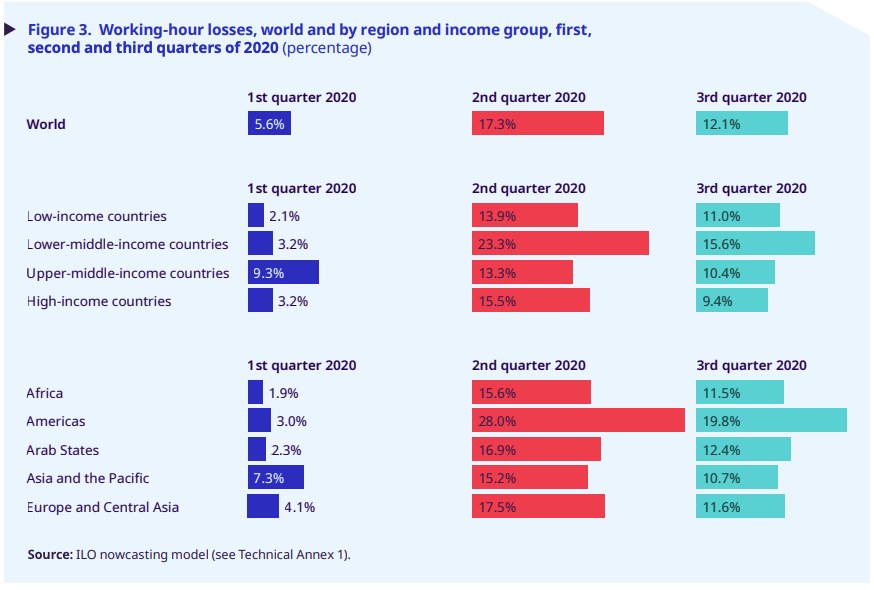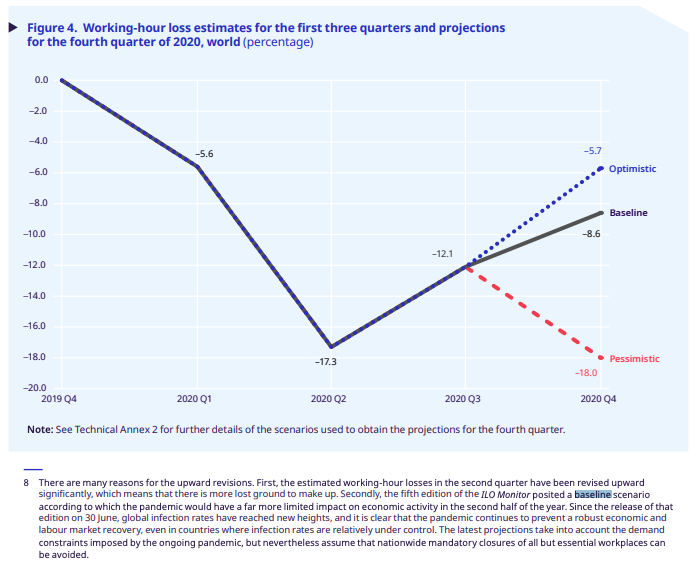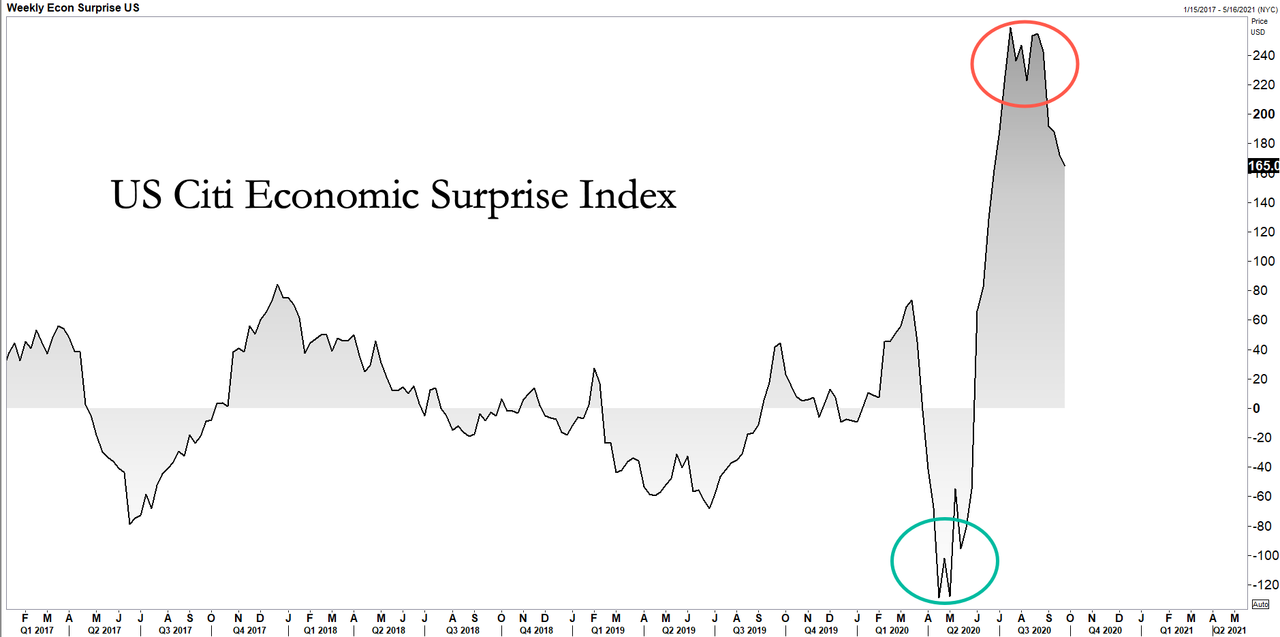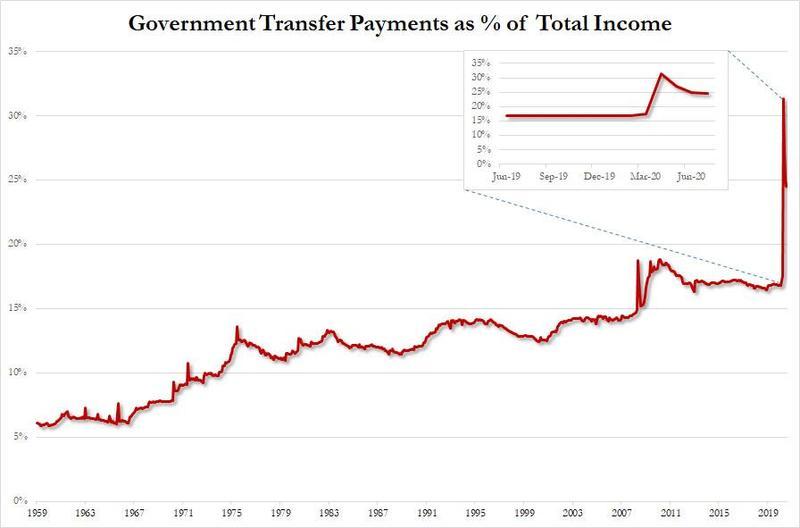"Massive" Labor Income Losses Worldwide As Recovery Falters Tyler Durden Sun, 09/27/2020 - 07:35
The latest data compiled by the International Labour Organization (ILO) sheds new light on COVID-19's "devastating" impact on the labor market reveals a "massive" drop in labor income and hours for workers worldwide.
Global labor income plunged 10.7%, or $3.5 trillion, in the first nine months of 2020, compared with the same period in 2019, ILO's new report found, which is one of the first measurements to quantify the deep economic scarring that has left the global economy paralyzed. The figure excludes income derived by governments to compensate for labor loss during the pandemic.
The report, titled "ILO Monitor: COVID-19 and the world of work. Sixth edition," was published on Wednesday (Sept. 23), notes how global labor hour losses in the first nine months of 2020 have been "considerably larger" than the estimate from the previous report issued in late June.
The report found the largest income loss was primarily in lower-middle income countries, where the labor income losses reached 15.1%.
"Workplace closures continue to disrupt labor markets around the world, leading to working-hour losses that are higher than previously estimated," ILO said.
The United Nations agency said global working-hour losses are expected to remain elevated in 3Q20, at 12.1%, or equivalent to 345 million full-time equivalent (FTE) jobs (based on a 48-hour working week). The revised downside projections for 4Q20 suggest a more pessimistic outlook for the global economy is ahead.
ILO's baseline scenario, for working-hour losses, in the fourth quarter, is -8.6%. The most optimistic is +5.7%, while the most pessimistic is -18%.
"The latest data confirm that working-hour losses are reflected in higher levels of unemployment and inactivity, with inactivity increasing to a greater extent than unemployment. Rising inactivity is a notable feature of the current job crisis calling for strong policy attention. The decline in employment numbers has generally been greater for women than for men," ILO said.
The driver behind increased working-hour losses in developing and emerging economies is that informal employment continues to be affected by strict public health orders to mitigate the virus spread.
ILO said there's a "clear correlation" between how much fiscal stimulus a country does and working-hour losses. For example, more stimulus has offset a reduction in working hours. Many of these stimulus packages have been observed in high-income countries, as emerging and developing economies had limited borrowing capacity to finance such measures.
ILO Director-General Guy Ryder warned about a "huge fiscal stimulus gap," and the dire need for governments to unleash more fiscal stimulus to mitigate additional stresses in the global labor market.
"Just as we need to redouble our efforts to beat the virus, so we need to act urgently and at scale to overcome its economic, social, and employment impacts. That includes sustaining support for jobs, businesses, and incomes," Ryder said in a statement.
The report debuted as the US entered the 53rd day of the fiscal cliff. As discussed extensively in late July in" 'Look Out Below': Why The Economy Is About To Fly Off A Fiscal Cliff", a lapse in stimulus has the risk in reversing the economic recovery.
A record of 25% of all personal income in the US is derived from the government via stimulus programs. Without stimulus, the economy craters.
With ILO's report noting more labor market stress is ahead for the final quarter of the year, it all suggests there will be no "V"- shaped recovery in 2H20.
And this could be the moment where Wall Street realizes the shape of the recovery was never a "V," resulting in the next wave down in stocks.
https://ift.tt/2S55Amm
from ZeroHedge News https://ift.tt/2S55Amm
via IFTTT









0 comments
Post a Comment